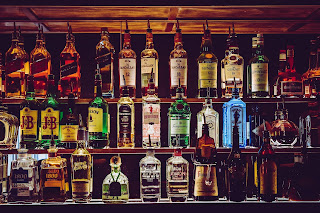Many conventional health experts, dietary supplement companies, and scientific websites assert that the liver gathers pollutants throughout the sorting process.
They claim that these toxins can result in a variety of ambiguous symptoms, may even induce real illnesses, and may eventually increase the risk of malignant growth.
Nevertheless, exposure to synthetic substances over time can be harmful to the liver.
For instance, using alcohol is a special way to permanently damage the liver's capacity.
Aliver cleanse often involves at least one of the following:
- taking supplements intended to flush toxins out of the liver
- eating a liver-accommodating eating regimen
- staying away from specific food varieties
- going on a juice diet ( Beetroot Juice , Green Juice , Watercress Juice )
- cleansing the colon and stomach using bowel purges
A healthy liver normally cleanses itself. A liver cleanse won't help a problematic liver.
A person with a liver infection needs appropriate clinical care and might also need to make dietary or lifestyle adjustments.
Detoxing the Pancreas
Affected by food poisons or in distress, the pancreas may exhibit abnormal hormonal features and diseases like diabetes.
Detoxifying and cleansing the pancreas to prevent occasionally anticipated injury is one way to support this essential organ.
Consuming natural food products speeds up pancreatic cleansing and helps the body get rid of impurities.
Increased water intake will enable produced toxins to pass through the kidneys more quickly and be eliminated from the body through discharge. The pancreas is stimulated by nutrients.
Nutrition prevents pancreatic diseases such malignant pancreatic development, according to the American Pancreatic Association. To detox the pancreas, some particular methods can be employed in addition to liver and pancreas cleanses.
These include the following:
- Drink a lot of water
- Eat a lot of vegetables and natural products.
- Keep up with inside consistency through high fiber admission.
- Eat probiotic food sources.
- Get sufficient measures of protein in your eating regimen (protein is additionally essential for the detox interaction.
Foods That are Bad For Liver and Pancreas Health
•Alcohol
Long periods of excessive alcohol consumption are the cause of liver disease caused by alcohol.
More than eight drinks per week for women and fifteen for males is considered excessive drinking.
Alcohol abuse can also reduce the effectiveness of liver and pancreatic cleanses.
•Fried Food
Fried food sources like chicken strips and French fries are high in saturated fat.
Eating a lot of saturated fat can make it difficult for your liver and pancreas to perform their functions and, over time, can lead to liver deterioration and potentially permanent liver disease (cirrhosis).
•Processed Meats
When consumed over an extended period of time, processed meats like salami, bacon, and franks will typically be unusually rich in saturated fat.
If you choose to consume processed meats, do so sparingly and, where possible, choose lean and extremely lean meats.
•Soft-drinks
Sugar-sweetened soft drinks offer hardly no supplements.
Having a lot of added sugar can cause the liver to mistakenly convert the excess sugar to fat, which can eventually lead to fatty liver and pancreas infection.
Conclusion
To maintain healthy liver and pancreas health over the long term, liver and pancreas cleanses have gained popularity.
People are searching for the finest liver and pancreatic cleanse in anticipation of the advantages of employing these cleanses.
You can keep your health in great condition by routinely detoxifying your liver and pancreas.
By using cleanse and the other advice on this site could be beneficial for you. Use these recommendations at your own pace to maximize your gains.






Comments
Post a Comment